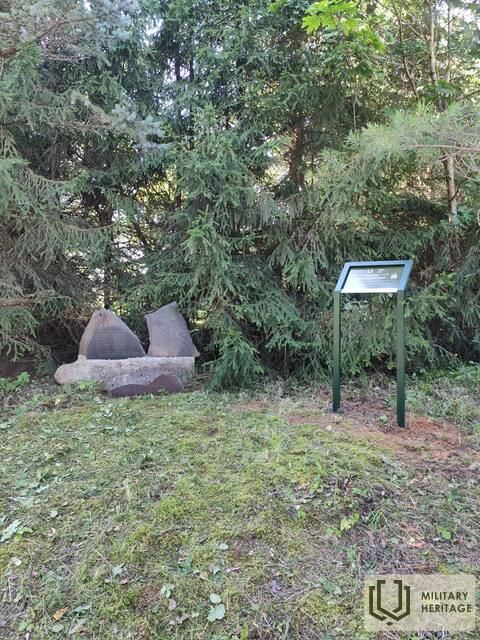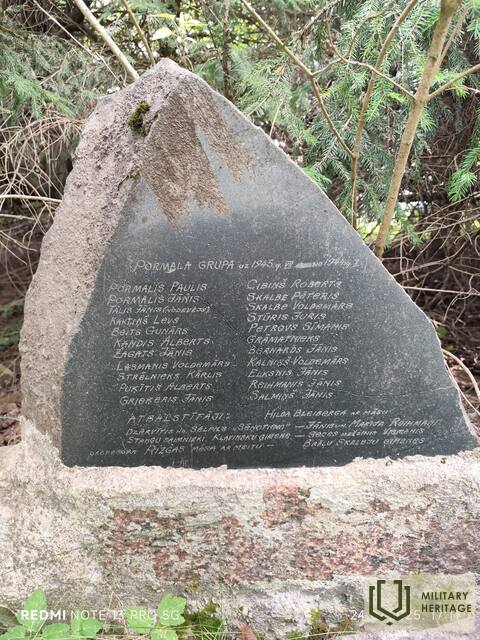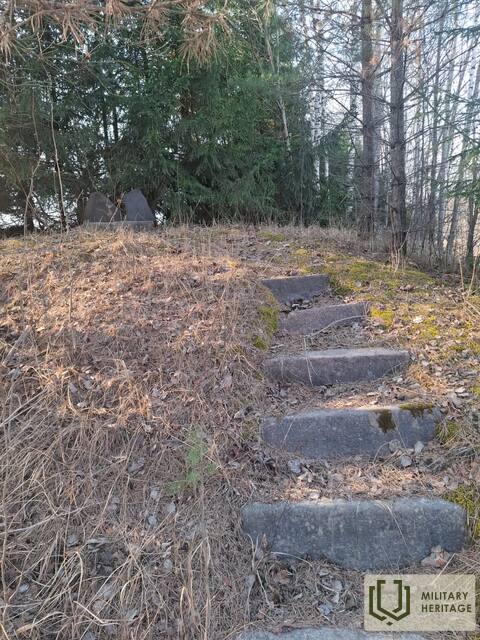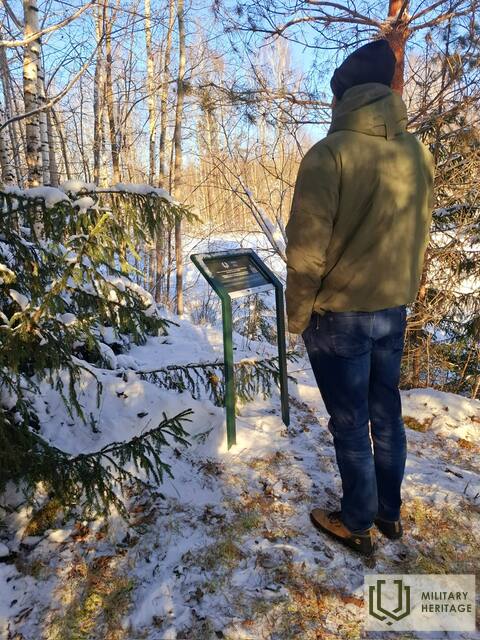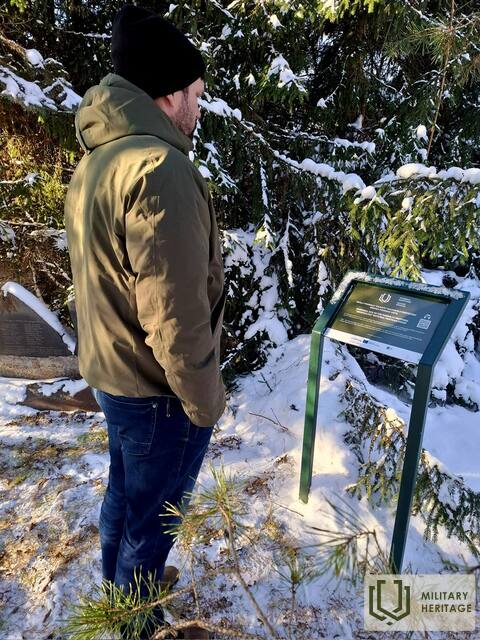Memorial site of the Pormaļi brothers' partisan group "Vilkaci"
Memorial site

The national partisan war, which continued in Latvia until the mid-1950s, did not pass by Sēlija region, where the Pormaļi brothers' partisan group "Vilkaci" had been actively operating in the Seces and Sēlpils parishes since the autumn of 1944.
The Pormaļi Brothers National Partisan Group was formed in the fall of 1944, when Paulis and Jānis Pormaļi, as part of the German army counterintelligence group "Zeppelin", crossed the front line near Koknese and crossed the Daugava, returning to their native Sece parish, Jēkabpils district.
In February 1945, partisans prevented the arrest of landlord Kļavinskis by attacking a group of Chekists near the Vīgante School, captured and sentenced to death the director of the Seces Motor Technical Station, Kārlis Tauriņš, who had actively participated in the deportations of June 14, 1941, and after returning from Russia, again threatened Latvians with deportation to Siberia.
In the summer of 1945, partisans also turned against the Soviet-organized logging of the Seces forests, repeatedly shooting at gunpoint workers assigned to forest work, led by the local Communist Party organizer Turčins. Damage to railway tracks and agricultural machinery was also widespread, sabotaging threshing. On national holidays, partisans hung self-made Latvian national flags in the highest places.
The Pormaļi brothers' partisan group also published several issues of the illegal newspaper "Vilkaču Sauciens" in the forest.
The Soviet security authorities had even announced a reward of 10 thousand rubles for the surrender of the Pormaly brothers.
On August 11, 1946, as a result of betrayal, the Chekists surrounded the Pormalys brothers in the home of the local forester. Paulis left the house through the back door, but Jānis managed to escape by running through a rye field into the forest.
On October 16, 1946, the Chekists managed to lure the leader of the partisan group, Pauli Pormali, into a trap, and he fell near the "Taimiņi" house in Sece parish.
On August 8, 1948, the Baltic War District Military Tribunal sentenced Jānis Pormālis to twenty-five years in prison. He spent eighteen long years in Soviet slave camps in Vorkuta, Taishet, and Mordovia, and was only able to return to Latvia in 1965.
Used sources and references:
Fearless "Wolves" in Selia, U.Neiburg, Latvian newspaper
Related timeline
Related stories
Selija's forest brother settlement in the Sūpe swamp
The Sūpes swamp is associated with the sites of national partisan settlements and battles, which were formed through the interaction of people and places. It is described in the ballad of the exiled Latvian writer Alberts Eglītis about the events in his native Sūpes swamp “In Moss and Mud” - a tribute to the Sūpes swamp partisans:
… “In 1945, as autumn glowed in the swamp -
On Pokļevinskis' birthday, Lieljānis shares at dinner:
Beer fermented in willows,
The Romulans worship butter,
I dry my mother's caraway bread,
Dried ham in March cuts,
And Stuchka's onions,
Ildzeniece cheese.
Rooms in resinous walls
And lightning has struck hearts,
And in eleven souls languish-
"The roots that have rotted in the ground..."
This interpretation of the past, with its post-World War II events, included human testimonies, expressions of spirit, and value systems. It recalls the popular support for the national partisans, whom the occupying power could not defeat so easily.




